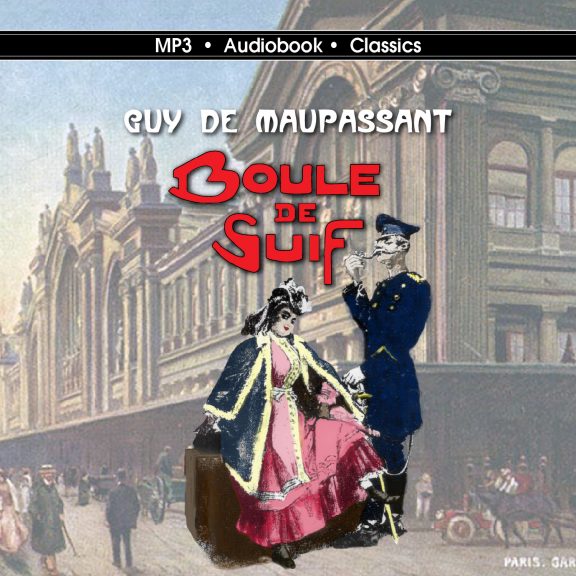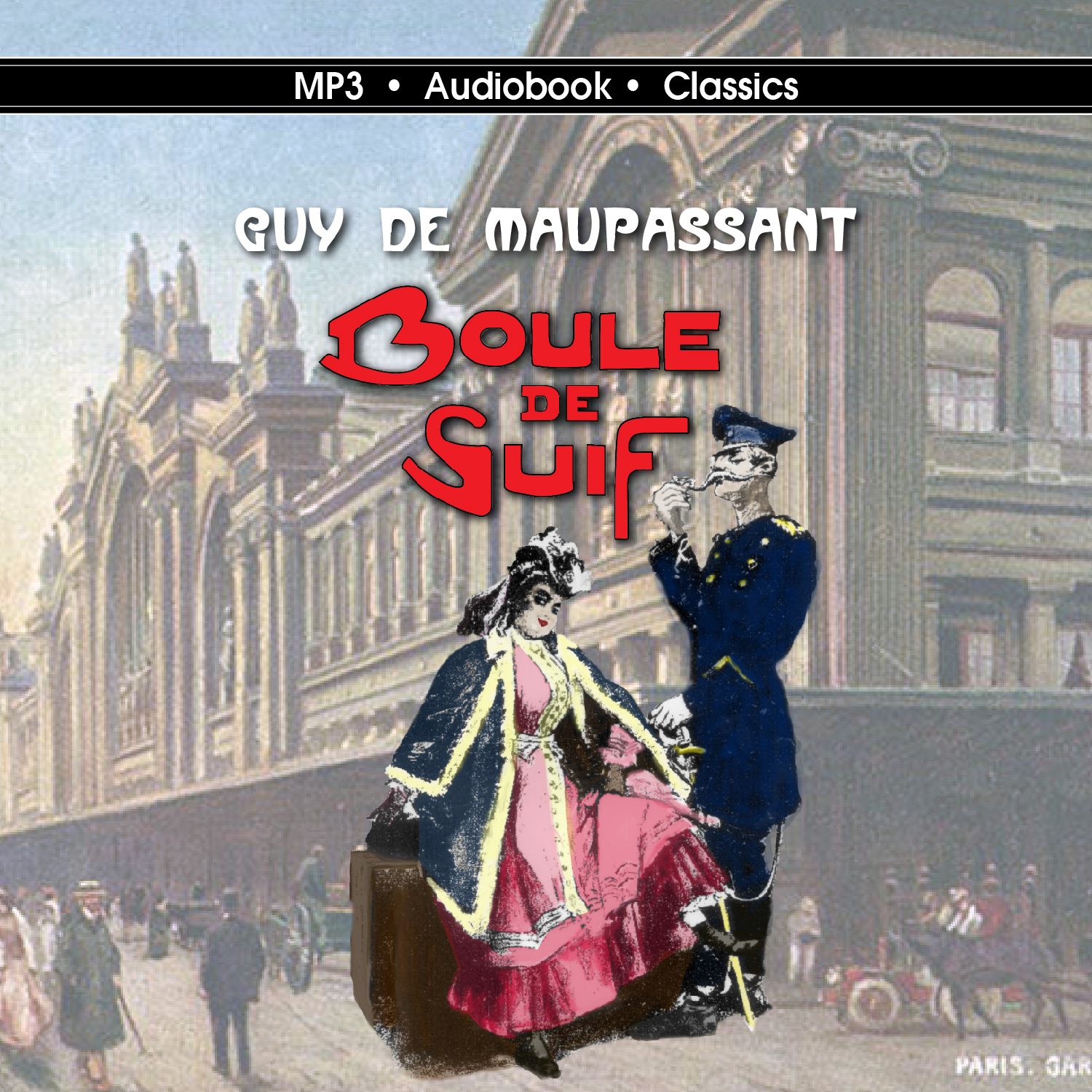
Boule de Suif
By Guy de Maupassant
“Boule de Suif” is one of the first short stories by Guy de Maupassant and possibly the most famous. The title phrase, which can be translated as “Dumpling”, “Butterball”,or “Ball of Fat”, is the name given to the title character, a prostitute by the name of Elisabeth Rousset. The story takes place during the Franco-Prussian War and concerns a group of ten residents of the French city of Rouen who have taken a carriage to flee the city for Le Havre shortly after its occupation by the Prussian army. The group represents a cross-section of French society: Ms. Rousset; a government official; a petty bourgeoisie shop-keeper couple; a wealthy factory owner and his wife; the Comte and Comtesse of Breville, and two nuns. A bad storm makes for slow going, and the travelers give the lady of the evening the cold shoulder until she produces a picnic basket and offers to share her food. They put up at an inn the village of Totes only to discover they have stumbled into Prussian-held territory and are detained by an officer without explanation.After two testy days they learn from the Boule de Suif that the detention will continue until she agrees to sleep with the officer, which she has refused to do. Initially supportive of her, the travelers’ patience dissolves over the next two days and they convince her to relent. She agrees and consorts with the officer, and they are allowed to leave the next morning. En route to Le Havre the paragons of virtue refuse to engage with her and decline to share their food. No good deed goes unpunished.



